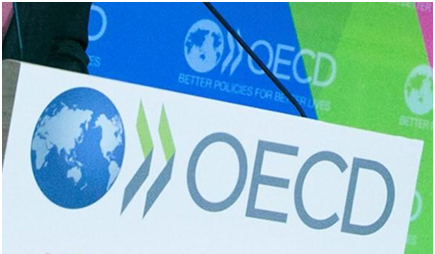
The Organisation for Economic Co-operation
and Development (OECD) has revised India’s GDP growth
projection upward to 6.6% for the fiscal year 2024-25. This adjustment
reflects the anticipation of robust growth driven primarily by increased public
investment and improved business sentiment.
·
OECD attributes the elevated growth forecast to
buoyant public investment and enhanced business confidence, anticipating a
positive impact on India’s gross domestic product (GDP) trajectory. Gross
capital formation, particularly in the public sector, is identified as a
significant driver of domestic demand. Private consumption growth is expected
to remain subdued, while exports, particularly in services like IT and
consulting, are projected to expand, bolstered by foreign investment.
Despite the positive outlook, challenges persist, including sluggish private consumption, modest job
creation, and tight financial conditions. The OECD emphasizes the importance of
addressing indebtedness through revenue enhancement, spending efficiency
improvements, and stronger fiscal regulations. Fiscal consolidation is deemed
necessary, albeit likely to impact public investment.
Globally, GDP growth is forecasted to reach
3.1% in 2024, with a slight uptick to 3.2% in 2025. Variances
across countries are noted, with stronger growth in the US and major emerging
markets juxtaposed against softer outcomes in Europe and several low-income
nations.
Downside risks to India’s growth prospects include
potential supply chain disruptions due to geopolitical tensions, food inflation
stemming from extreme weather events, and negative spillovers from global
financial market fluctuations. Conversely, growth could surpass expectations if
ongoing disinflation bolsters purchasing power, stimulating household
consumption, business investment, and job creation
The report
anticipates the possibility of the Reserve Bank of India implementing its first
rate cut by late 2024, with cumulative cuts of up to 125 basis points by March
2026, contingent upon a normal monsoon season and stable inflation
expectations.